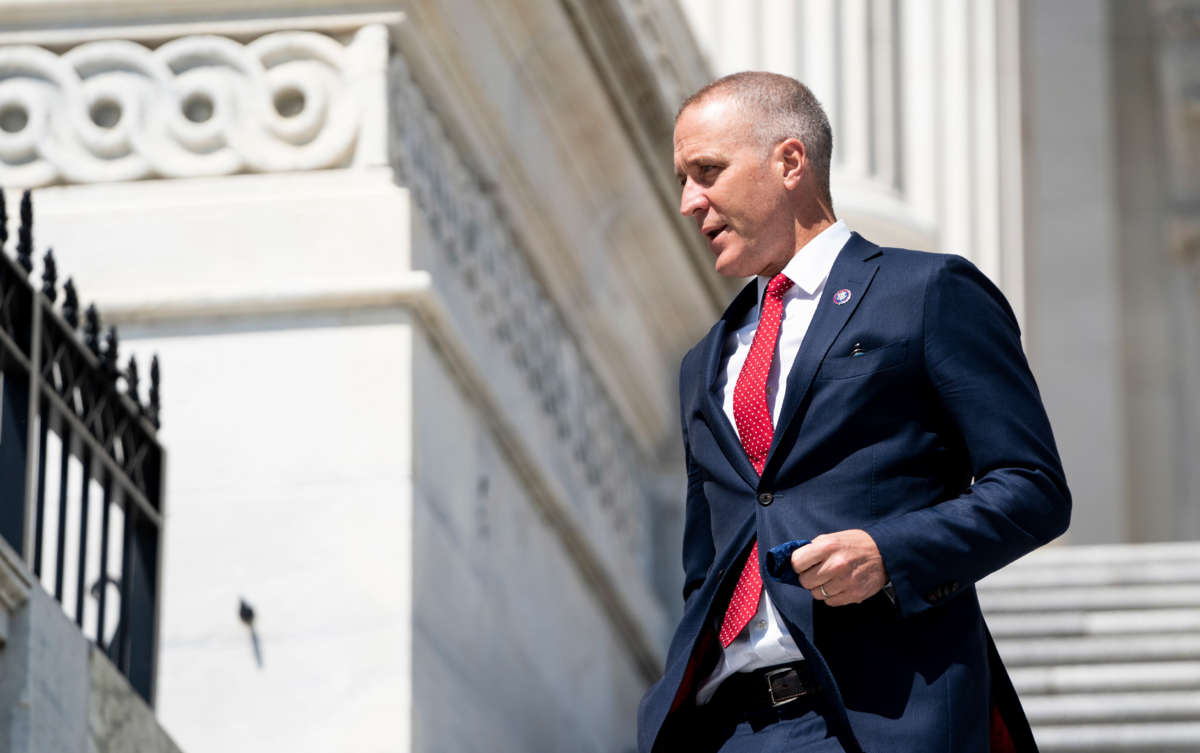After Democrats barely held on to control of the United States House of Representatives in the 2020 elections, Rep. Sean Patrick Maloney (D-New York), chairman of the Democratic Congressional Campaign Committee (DCCC), was tasked with looking at why the party did not fare as well as it had hoped.
Maloney announced his findings on Tuesday, in a 52-page PowerPoint presentation that laid out two primary reasons why Democrats fared as they did in the election last year.
First, Maloney said that polling was too optimistic for Democrats and didn’t accurately predict a surge of voters supportive of former President Donald Trump coming out in droves to voting booths across the country. The findings from Maloney on this particular issue matched what Democratic-leaning pollsters suggested earlier this year was a possible reason why their polling was off.
Having more accurate polling data, Maloney said, could have helped the DCCC to better allocate its resources. For instance, rather than spending some of its funding on long-shot races where Democratic challengers faced difficult odds displacing Republican incumbents in Congress, the organization could have increased efforts at defending one of the 11 incumbent Democrats who ended up losing to Republicans last year.
“If you had a crystal ball, you would have surged resources around incumbents that we now know were in more danger than the polling suggested and you would have felt less enthusiastic about some red-to-blue opportunities,” Maloney explained.
The second reason outlined in Maloney’s presentation had to do with what he called the ability of Republicans to attack Democratic candidates by describing them as “socialists” or supporters of the “defund the police” movement.
Maloney said that Democrats would be better prepared with stronger responses to attacks from Republicans in the 2022 midterms.
The DCCC chairman did not say how Democrats would deal with the defund police movement in the next campaign, but considering how a number of centrist Democrats — including President Joe Biden — have tried to reject the movement, there’s a high possibility that the party will ultimately choose to distance itself from it. Indeed, Maloney’s own comments in the past show how he has attempted to distance the Democratic Party from the notion of defunding the police.
That approach could work to the party’s own detriment.
With Republicans likely to continue using “defund the police” as a means of political attack, Democrats might be better off embracing the idea and doing a better job explaining what it means to voters rather than trying to dismiss it, polling on the subject has suggested.
The movement is still relatively unknown to a broad segment of Americans, which could explain why some polls, including a USA Today/Ipsos poll earlier this year, found that only 18 percent of the public supported the idea of defunding police.
However, a Vox/Data for Progress poll, conducted April 2-5, asked respondents if they would “support or oppose reallocating portions of police budgets to create a new agency of first-responders, like emergency medical services or firefighters, to deal with issues related to addiction or mental illness that need to be remedied but do not need police?”
Just 29 percent of Americans opposed the idea presented in that question, with 63 percent saying they were in favor of it. While that question doesn’t encapsulate all that the defund police movement stands for, the overwhelming public support for the idea is significant.
The proposal to reallocate police budgets even garnered significant support from Republican respondents in the poll, with 43 percent saying they were in support of it (49 percent said they were opposed).
The Vox/Data for Progress survey also asked how respondents felt about limiting the militarization of police forces across the country. On that question, a plurality (48 percent) were supportive of the idea, with just 37 percent saying they were opposed, and 16 percent saying they didn’t know how they felt.
That polling, contrary to what Maloney and other centrist Democrats are saying, suggests that if Democrats reject the defund police movement, they may actually be endangering their electoral chances in the midterms.
Angry, shocked, overwhelmed? Take action: Support independent media.
We’ve borne witness to a chaotic first few months in Trump’s presidency.
Over the last months, each executive order has delivered shock and bewilderment — a core part of a strategy to make the right-wing turn feel inevitable and overwhelming. But, as organizer Sandra Avalos implored us to remember in Truthout last November, “Together, we are more powerful than Trump.”
Indeed, the Trump administration is pushing through executive orders, but — as we’ve reported at Truthout — many are in legal limbo and face court challenges from unions and civil rights groups. Efforts to quash anti-racist teaching and DEI programs are stalled by education faculty, staff, and students refusing to comply. And communities across the country are coming together to raise the alarm on ICE raids, inform neighbors of their civil rights, and protect each other in moving shows of solidarity.
It will be a long fight ahead. And as nonprofit movement media, Truthout plans to be there documenting and uplifting resistance.
As we undertake this life-sustaining work, we appeal for your support. Please, if you find value in what we do, join our community of sustainers by making a monthly or one-time gift.
